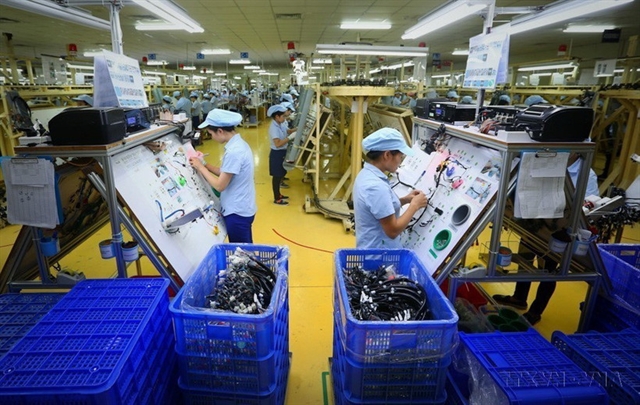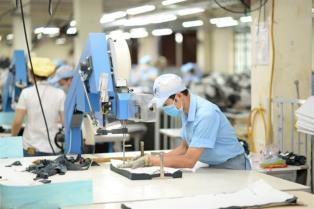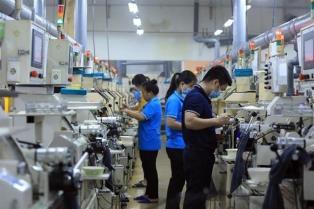The Vietnam Electronic Industries Association (VEIA) chaired a seminar titled “Building a Sustainable ESG Supply Chain – From Theory to Practice” on Thursday during the Vietnam International Exhibition on Electronic Components and Smart Manufacturing (GEIMS 2025) in Hà Nội.

HÀ NỘI — ESG is the pathway for Việt Nam’s electronics industry to climb higher in the global value chain. It is not just a global trend; it is the key to elevating the industry’s position and transforming Việt Nam into a strategic production centre.
Đỗ Thị Thúy Hương, Vice Chair of the Vietnam Association for Supporting Industries and Executive Committee Member of Vietnam Electronic Industries Association (VEIA) made the statement at a seminar titled 'Building a Sustainable ESG Supply Chain – From Theory to Practice' on Thursday during the Vietnam International Exhibition on Electronic Components and Smart Manufacturing (GEIMS 2025) in Hà Nội.
The event aimed to present practical solutions, success stories and concrete action strategies to help enterprises move from commitment to implementation and from 'compliance' to 'leadership' in their environmental, social and governance (ESG) journey in Việt Nam.
Deputy General Director of Hanel PT Trần Đức Tùng said that green production and environmental protection have been embedded in the company’s philosophy since its founding. ESG, he said, is a core goal of Hanel PT and a foundation for sustainable development. Over time, it has become both a guiding principle and an integral part of the firm’s culture.
“Investing in ESG is a measure of cultural depth, leadership capacity and the long-term future of the business. Without investing in ESG, enterprises cannot go far. They need to improve governance, optimise processes and streamline systems to compensate for ESG-related expenses,” Tùng said.
Phạm Văn Đồng, Director of IPQ International Productivity and Quality Consulting Co Ltd noted that many still perceive ESG as an additional cost. However, with global organisations and governments converging on ESG standards, as well as Việt Nam commitments to net zero by 2050, it is no longer something enterprises can work around.
“Customers and supply chains are now embedding ESG requirements directly into contracts, order conditions and procurement rules. This creates cost pressures and adds significant burdens for enterprises. But for businesses with a strong strategy and the right support, ESG implementation will certainly lead to a better future,” Đồng said.
Opportunities
Việt Nam’s electronics sector has firmly established itself as one of the pillars of national economic growth, accounting for more than 30 per cent of industrial export turnover. This role not only enables Vietnamese electronics firms to take part more deeply in global value chains, but also contributes to the national net zero 2050 commitment.
According to Hương, the Vietnamese electronics industry is emerging as a trusted partner on the global technology map.
Member companies expect VEIA to take the lead in guiding ESG implementation that aligns with industry needs and supports engagement with multinational corporations, many of which are now requesting a domestic ESG standard for Việt Nam’s electronics sector.
“With a clear message that ESG can only succeed when industry organisations and supply chains move together, VEIA has identified ESG support as a strategic mission. We want ESG to stop being seen as a cost and instead become a core driver of growth for Vietnamese enterprises,” Hương said.
She said that VEIA is currently working with research institutes, international organisations and member companies to develop an ESG Handbook for the electronics sector — creating a practical ESG framework suited to Vietnamese enterprises. The association is also promoting standardisation in environmental management, chemical handling and social responsibility, with the goal of making Việt Nam a destination for green, sustainable supply chains.
"VEIA believes that when enterprises are strong, the nation is strong. When supply chains are sustainable, the electronics industry will be sustainable,” Hương said. — VNS





